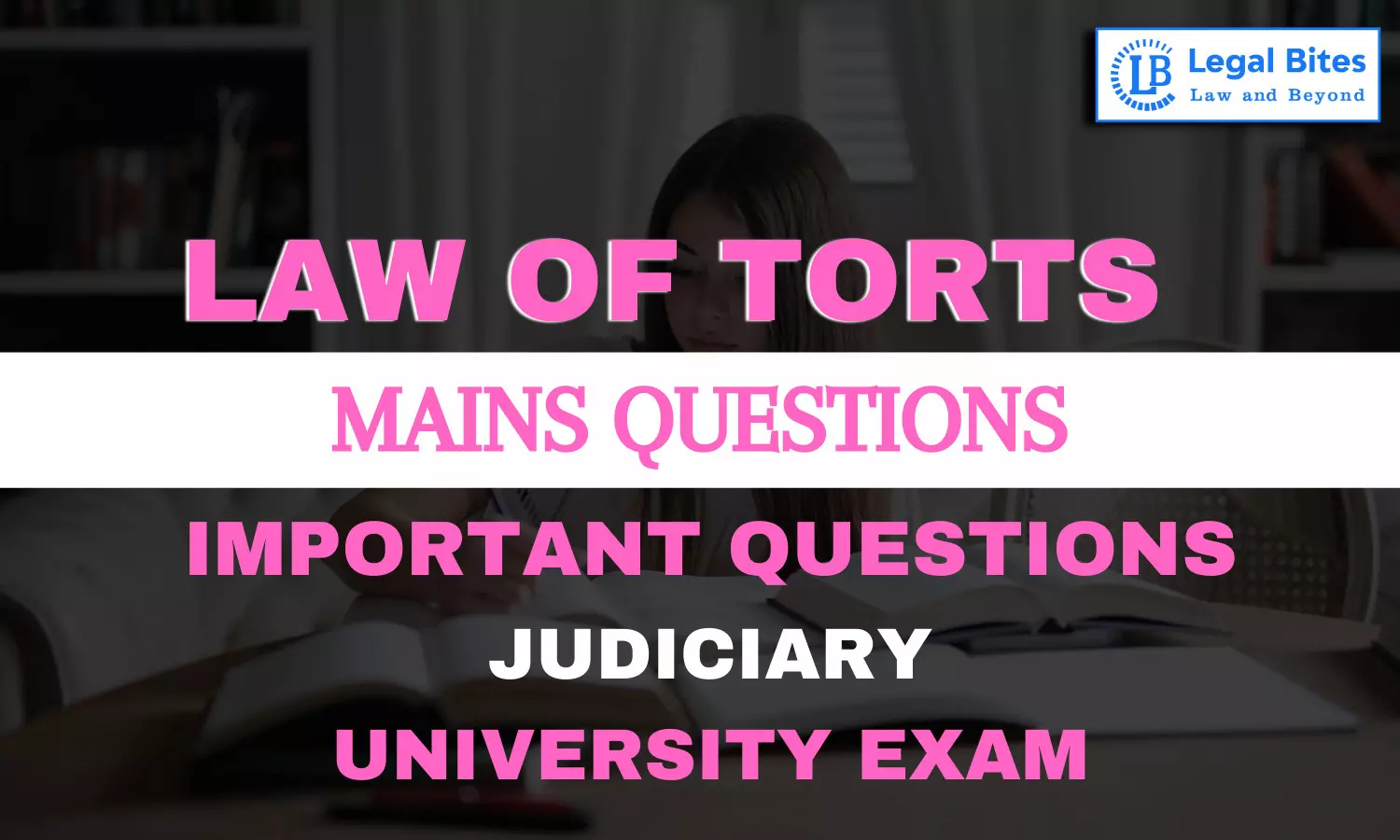Define and explain 'false imprisonment'.
Find the question and answer of Law of Torts only on Legal Bites.

Question: Define and explain 'false imprisonment'.Find the question and answer of Law of Torts only on Legal Bites. [Define and explain 'false imprisonment'.]AnswerIn tort law, false imprisonment is defined as the intentional and unlawful confinement or restraint of a person against their will, without any legal justification or authority. False imprisonment is considered a civil wrong or tort that can result in a legal claim for damages.To establish a claim for false imprisonment in tort...
Question: Define and explain 'false imprisonment'.
Find the question and answer of Law of Torts only on Legal Bites. [Define and explain 'false imprisonment'.]
Answer
In tort law, false imprisonment is defined as the intentional and unlawful confinement or restraint of a person against their will, without any legal justification or authority. False imprisonment is considered a civil wrong or tort that can result in a legal claim for damages.
To establish a claim for false imprisonment in tort law, the following elements must be proven:
The detention or confinement of the plaintiff: The plaintiff must have been detained or confined by the defendant, either physically or by the threat of force.
The detention or confinement was against the plaintiff's will: The plaintiff must not have consented to the detention or confinement.
The detention or confinement was without lawful authority: The detention or confinement must not have been authorized by law or any legal process, such as a warrant or court order.
The detention or confinement was intentional: The defendant must have intended to detain or confine the plaintiff against their will.
The plaintiff suffered damages as a result of the detention or confinement: The plaintiff must have suffered harm or injury as a result of the false imprisonment, such as physical harm, emotional distress, or financial loss.
Examples of false imprisonment in tort law include situations where a store security guard detains a customer without lawful authority or where a police officer arrests someone without probable cause or a warrant.
If the plaintiff is successful in proving these elements, they may be entitled to damages for the harm caused by the false imprisonment, such as compensatory damages for any injuries suffered, as well as punitive damages, which are intended to punish the defendant for their wrongful conduct.
False imprisonment in tort law is the intentional and unlawful confinement or restraint of a person against their will, without any legal justification or authority. It is a civil wrong or tort that can result in a legal claim for damages if the plaintiff can prove the necessary elements.

Mayank Shekhar
Mayank is an alumnus of the prestigious Faculty of Law, Delhi University. Under his leadership, Legal Bites has been researching and developing resources through blogging, educational resources, competitions, and seminars.
